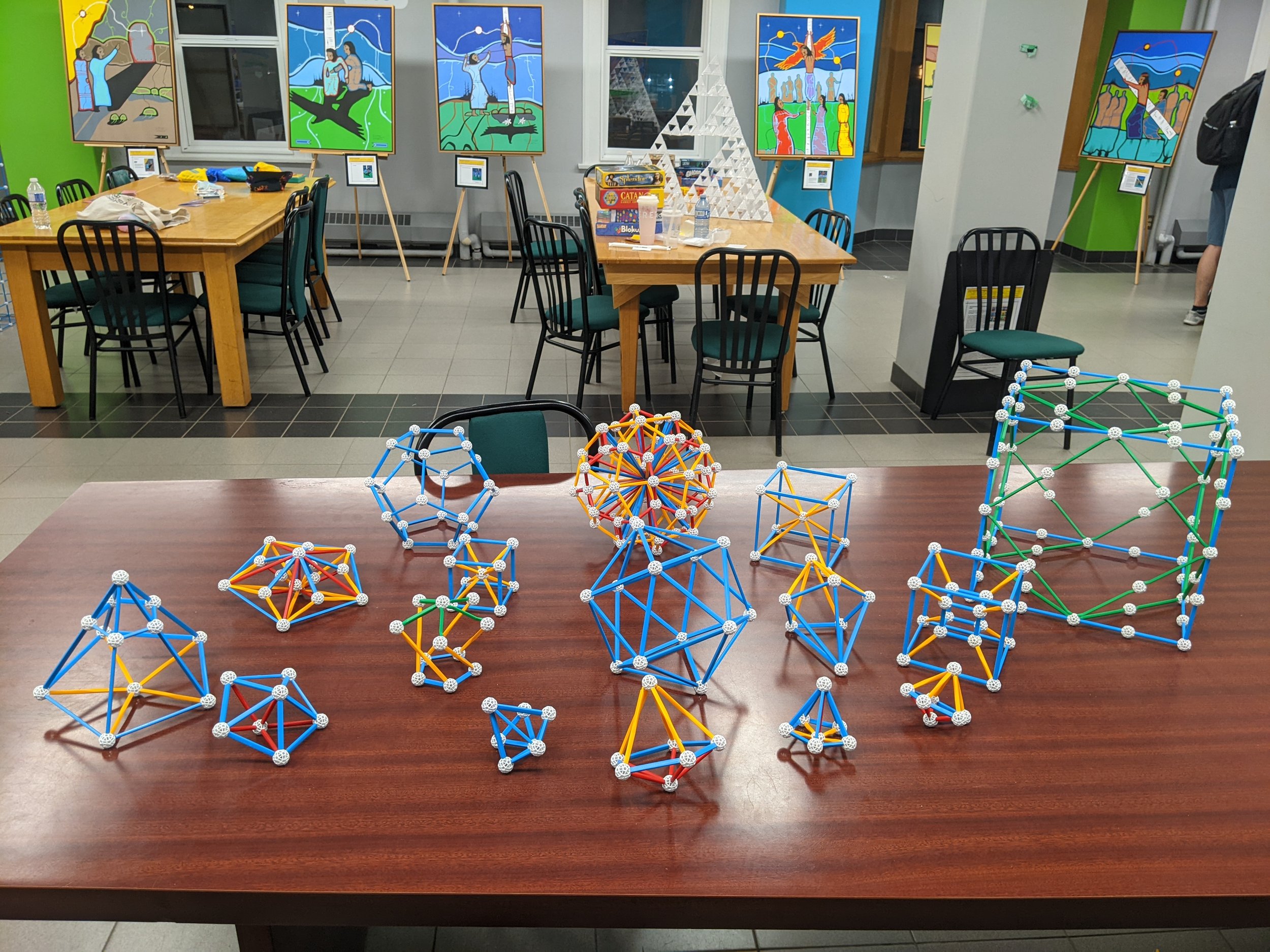Math Contests in STEM- an Interview With Sean Graves
Competitive math is a rising STEM field as more and more students are beginning to find interest and futures in the subject. I spoke with esteemed professor Sean Graves about his experiences hosting this activity.
Photo Credit: Dawn Graves
Sean Graves is a respected and outstanding professor at the University of Alberta, in the Department Mathematical and Statistical Sciences. He is also the Coordinator of the Decima Robinson Support Centre.
He has won the 2022 PIMS Education Prize for his hard work and brilliance in his teaching, and his immense impact on the mathematics community. He coordinates and hosts many mathematical events for students hoping to enrich their interests and knowledge in the field, including workshops, camps such as the CMS Regional math summer camp, and many contests such as the AMC 8, 10, and 12, Canadian Open Mathematics Challenge, Tournament of Towns, the Canadian Jay Mathematical Competition, and so much more. He has made the ability for students in Alberta to access opportunities in competitive math so much more feasible, and has introduced many students into a field that they will later come to love and aspire to be in.
1. What made you decide to begin hosting these events?
My undergraduate degree is a Bachelors of Education, and about twenty years ago I spent some time teaching junior high and high school mathematics. After returning to the university to pursue graduate studies in pure maths, I found that I missed working with children.
My supervisor for my masters program was involved in math outreach (contests, camps, etc.), so it was a very natural transition to become involved in these types of events. I thoroughly enjoy working with the eager young minds that sign up for the various contests throughout the year.
2. How has your experience with hosting math events and contests been?
Being involved with math events has been very positive and rewarding for me. I have met some remarkable young people over the years. It is wonderful to see where their lives take them as they navigate through school, university, and eventually into their careers.
For several years I brought a team of Albertan (jr. high) students to the International Mathematics Competition. Because of my involvement with this particular contest, I had an opportunity to visit several of the host countries (Indonesia, Taiwan, China, Korea, Thailand, India). I truly believe there is no better education than international travel. It has been wonderful meeting the other participants and team-leaders from all over the world.
3. What other math related events or practices would you like to see implemented in the future?
Someday I would love to host the International Mathematics Competition in Banff, Alberta. It would make me very proud to show the participants from all over the world what a hospitable and beautiful country in which we live in. The natural beauty of the Banff National Park would be a perfect setting for the amiable essence of the IMC.
4. What benefits do you believe participation in these events can bring for students?
The types of problems in contests such as the Tournament of the Town are perfect for stretching a person’s mind beyond what is generally done in a regular school classroom. The questions on this particular contest (from Russia) are incredibly creative, and they require similarly creative solutions. In my opinion, this is the most difficult contest that I host, but it is also the most beneficial to the participants. Participants writing the ToT are given ample time (4 hours) to work on only three questions. This allows the students to fully immerse themselves in a problem and think very deeply about it.
Just this past week, I was reminded by a colleague that most individuals who are at the top of their fields are strong in mathematics. Whether someone is interested in the natural or physical sciences, engineering, health, social sciences such as politics or law, or really almost any other field, having a strong aptitude for mathematics is important.
Another benefit of mathematics contests, camps, and clubs is the social aspect of the activities. Lasting friendships are often made during these types of events where participants meet other like-minded individuals who have similar interests and goals. Moreover, having an opportunity to meet and network with professors who can give advice or act as a reference is important for students who plan to continue their studies.
5. Is there anything else you would like to share?
I wish that I could spend more time on these types of activities. I am quite busy teaching classes and coordinating the Decima Robinson Support Centre at the University of Alberta. Unfortunately I can only find small pockets of time to work on outreach activities whenever possible.
Photo Credit: Dawn Graves
Sean Grave’s efforts continue to strive the mathematics community and many passionate students in Alberta forward. We appreciate the work and impacts he has put into the mathematical community, and look forward to seeing his future work!





